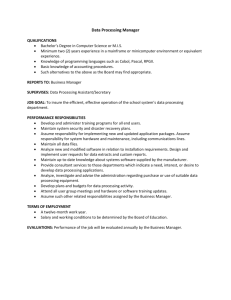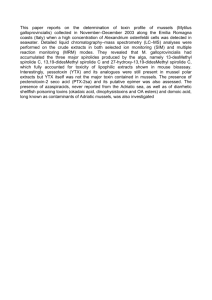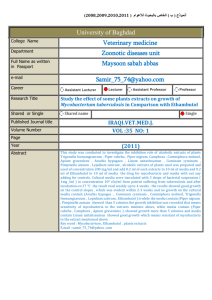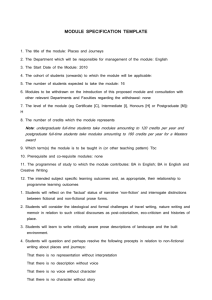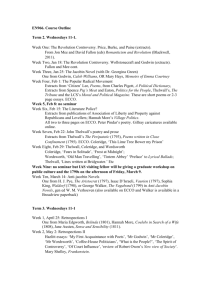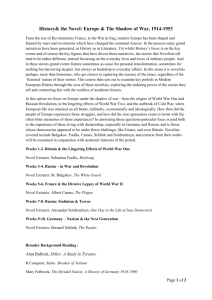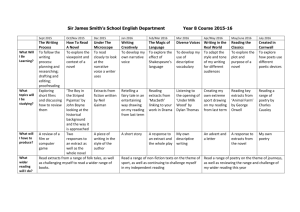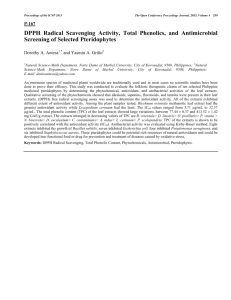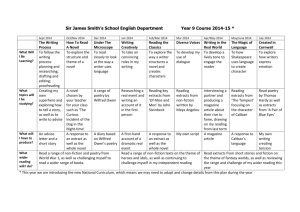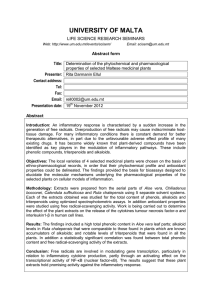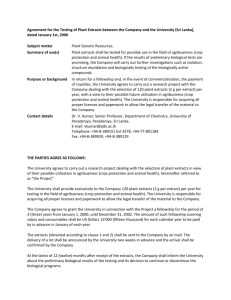DOCX 21.66KB
advertisement
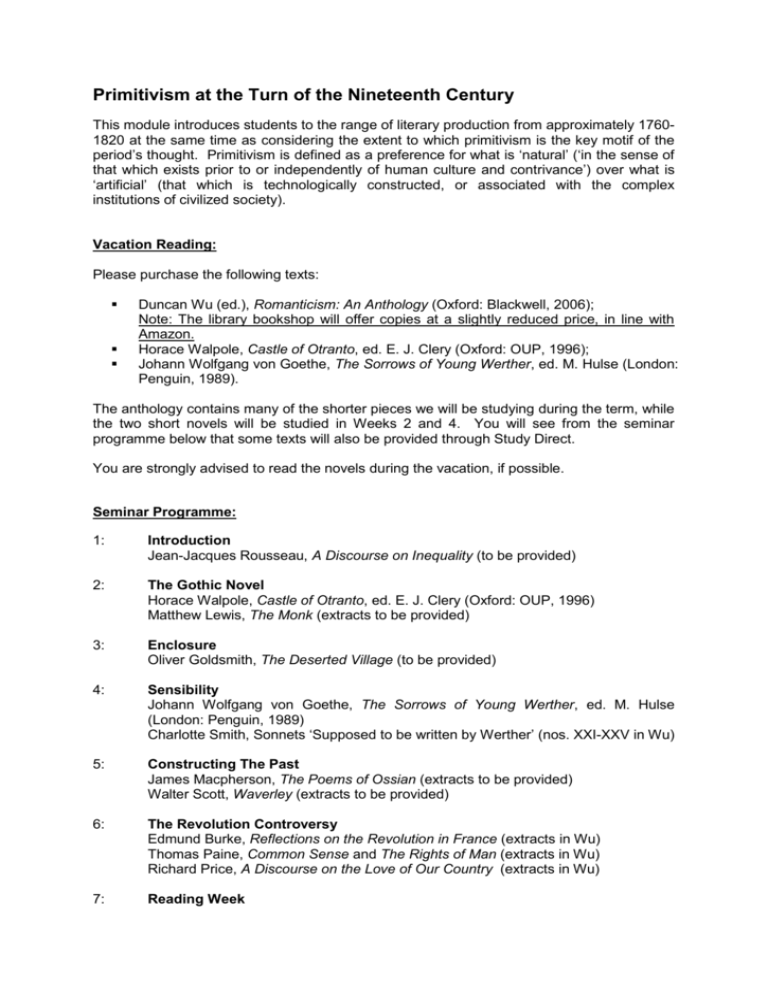
Primitivism at the Turn of the Nineteenth Century This module introduces students to the range of literary production from approximately 17601820 at the same time as considering the extent to which primitivism is the key motif of the period’s thought. Primitivism is defined as a preference for what is ‘natural’ (‘in the sense of that which exists prior to or independently of human culture and contrivance’) over what is ‘artificial’ (that which is technologically constructed, or associated with the complex institutions of civilized society). Vacation Reading: Please purchase the following texts: Duncan Wu (ed.), Romanticism: An Anthology (Oxford: Blackwell, 2006); Note: The library bookshop will offer copies at a slightly reduced price, in line with Amazon. Horace Walpole, Castle of Otranto, ed. E. J. Clery (Oxford: OUP, 1996); Johann Wolfgang von Goethe, The Sorrows of Young Werther, ed. M. Hulse (London: Penguin, 1989). The anthology contains many of the shorter pieces we will be studying during the term, while the two short novels will be studied in Weeks 2 and 4. You will see from the seminar programme below that some texts will also be provided through Study Direct. You are strongly advised to read the novels during the vacation, if possible. Seminar Programme: 1: Introduction Jean-Jacques Rousseau, A Discourse on Inequality (to be provided) 2: The Gothic Novel Horace Walpole, Castle of Otranto, ed. E. J. Clery (Oxford: OUP, 1996) Matthew Lewis, The Monk (extracts to be provided) 3: Enclosure Oliver Goldsmith, The Deserted Village (to be provided) 4: Sensibility Johann Wolfgang von Goethe, The Sorrows of Young Werther, ed. M. Hulse (London: Penguin, 1989) Charlotte Smith, Sonnets ‘Supposed to be written by Werther’ (nos. XXI-XXV in Wu) 5: Constructing The Past James Macpherson, The Poems of Ossian (extracts to be provided) Walter Scott, Waverley (extracts to be provided) 6: The Revolution Controversy Edmund Burke, Reflections on the Revolution in France (extracts in Wu) Thomas Paine, Common Sense and The Rights of Man (extracts in Wu) Richard Price, A Discourse on the Love of Our Country (extracts in Wu) 7: Reading Week 8: Slavery & Abolition Ouladah Equiano, The Interesting Narrative of the Life of Olaudah Equiano (extracts to be provided) Hannah More & Eaglesfield Smith, ‘The Sorrows of Yamba’ (to be provided) William Cowper, ‘Sweet Meat Has Sour Sauce’ (in Wu) 9: Nature 1 William Blake, ‘The Tyger’ (in Wu) Robert Burns, ‘To a Mouse’ (in Wu) William Wordsworth, The Prelude (extracts to be provided) 10: Nature 2 Dorothy Wordsworth, The Grasmere Journals (extracts in Wu) John Keats, ‘Ode to a Nightingale’ (in Wu) John Clare, ‘To the Snipe’ (in Wu) 11: The City Hazlitt, ‘On Londoners and Country People’ (to be provided) William Blake, ‘London’ & ‘The Chimney Sweeper’ (in Wu) William Wordsworth, ‘Residence in London’ from The Prelude (to be provided) Assessment: 1 x Midterm Essay of 1,500 words (30%) 1 x Essay of 2,000 words, to be submitted after the semester (70%)
![Literature and Society [DOCX 15.54KB]](http://s2.studylib.net/store/data/015093858_1-779d97e110763e279b613237d6ea7b53-300x300.png)
